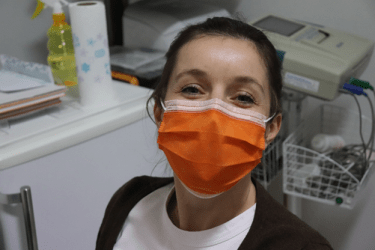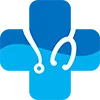
Going From a Registered Nurse to a Master of Science in Nursing: Your Essential Guide
Newsletter Going From a Registered Nurse to a Master of Science in Nursing: Your Essential Guide Picture Credit In the ever-evolving field of healthcare, the path to excellence often calls for more than just practical experience. For Registered Nurses (RNs) eyeing career advancement, pursuing a Master of Science in Nursing (MSN) can be the golden ticket. If you’re contemplating this leap, here’s everything you should know about transitioning from RN to MSN. Why Consider an MSN? An MSN degree can open doors to specialized roles like Nurse Practitioner, Clinical Nurse Specialist, Nurse Educator, or Nurse Administrator. With an MSN, you’re poised for leadership positions, offering you, not just a higher earning potential but also the chance to drive change in healthcare. Furthermore, the MSN curriculum is tailored to refine your clinical expertise and broaden your healthcare policy, leadership, and research knowledge. Finally, as an advanced nurse, you’ll have the ability to influence healthcare policies, educate the next generation of nurses, or even pioneer research that transforms patient care. The Journey: Navigating the Transition 1. Choose Your Specialty: Pinpoint your passion before delving into an MSN program. Whether it’s family care, pediatrics, oncology, or administration, MSN programs offer a plethora of specializations. Select one that aligns with your career aspirations. 2. Find the Right Program: Not all MSN programs are created equal. Researching and choosing an accredited institution that offers a blend of theoretical knowledge and hands-on experience is crucial. For RNs keen on leveraging the reputable nursing institutions Texas boasts, there’s good news. The state has seen a surge in RN to MSN online Texas programs. These programs combine Texas’s rich medical heritage with the convenience of online learning, ensuring you’re equipped with top-tier knowledge and practical skills, regardless of your physical location. 3. Balance Work and Study: Juggling a full-time job as an RN with MSN studies can be challenging but not impossible. Opt for flexible course schedules, online classes, or part-time programs. Remember, the temporary hustle will lead to long-term gains. 4. Financial Planning: Advancing your education can be pricey. However, various scholarships, grants, and employer-sponsored programs can ease this burden. Research thoroughly and tap into these resources. 5. Networking: Engaging with professionals in the field, joining nursing organizations, or attending workshops can provide invaluable insights, mentorship opportunities, and even job prospects upon graduation. Life After MSN Once you’ve achieved your MSN, a new realm of opportunities and challenges awaits. 1. Continuous Learning: Medicine and healthcare are fields that constantly evolve. Even with an MSN, committing to lifelong learning is essential, whether through workshops, seminars, or even further education. 2. Mentorship: With your advanced degree and experience, you’ll be able to guide and support budding nurses. This not only elevates the profession but is also incredibly rewarding. 3. Pushing Boundaries: Advanced practice nurses often find themselves at the forefront of healthcare innovation. With your MSN, you’re not just a practitioner but a leader, educator, and advocate. Embrace this role to drive change. The Bottom Line Ascending from an RN to an MSN is undeniably a commendable journey. While the path can be demanding, the rewards – both personal and professional – are manifold. Whether it’s the allure of specialized practice, the desire to influence healthcare on a macro level, or the call to educate, an MSN is a significant step toward fulfilling these aspirations. Library Anatomy Anesthesiology Biochemistry Cardiology Dermatology Emergency Endocrinology ENT Examinations Forensic Med. Obs. & Gynae. Hematology Medicine Microbiology Nephrology Neurology Oncology Ophthalmology Orthopaedics Paediatrics Parasitology Pathology Pharmacology Physiology Psychiatry Pulmonology Radiology Rheumatology Surgery
Read More
